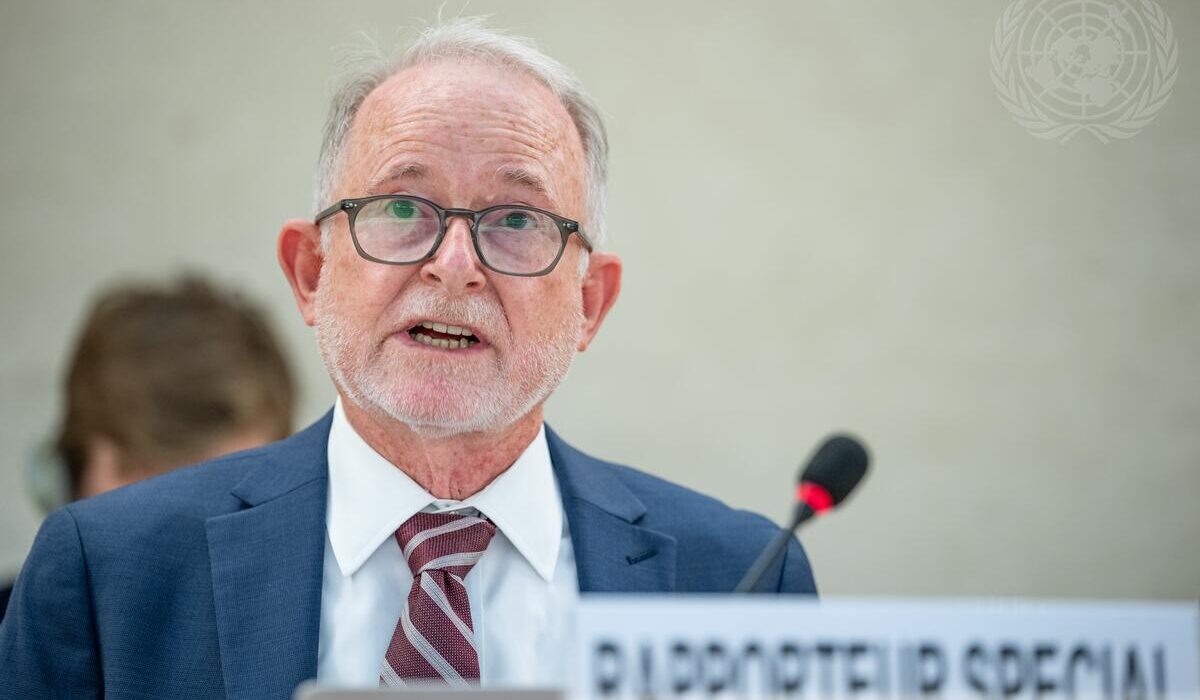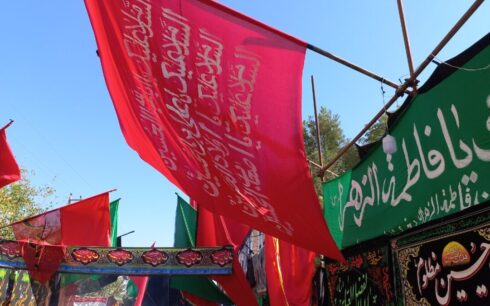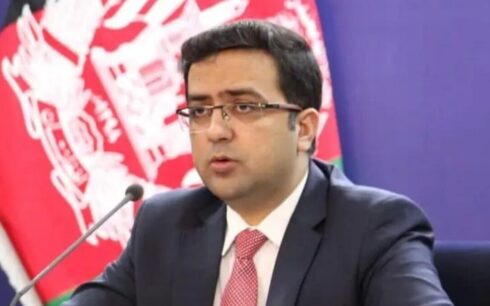KABUL, Afghanistan — Richard Bennett, the United Nations special rapporteur on human rights in Afghanistan, called on the Taliban to end their practice of public executions and corporal punishments, condemning Wednesday’s execution in Paktia Province as a “clear violation of human rights.”
“I condemn today’s horrific public execution in a sports stadium in Gardez, Afghanistan, as well as other corporal punishments and executions carried out by the Taliban,” Bennett said in a statement on X, formerly Twitter. “I call on the Taliban to immediately halt these atrocious punishments.”
Taliban conducted a public execution in Gardez on Wednesday, with senior Taliban officials, including Sirajuddin Haqqani, the Taliban’s interior minister, overseeing the punishment. The Taliban’s Supreme Court said in a statement that Mohammad Ayaz Asad, a resident of Paktia, was convicted of killing a man named Habibullah and was executed under “qisas,” or retributive justice, in front of a large crowd at the stadium.
Images shared on social media showed hundreds of spectators gathered to witness the execution, highlighting a continued pattern of public punishments since the Taliban returned to power in August 2021. This marks the latest in a series of executions, lashings, and stonings administered by Taliban courts, drawing widespread condemnation from human rights advocates.
In the three years since their takeover, the Taliban have reportedly carried out at least 176 public executions, with over 400 additional detainees in Taliban prisons currently awaiting sentences of qisas, according to information from the Taliban’s Supreme Court. The court further reported that in the past year alone, the Taliban have stoned 27 individuals and recorded four formal executions.
Human rights advocates and Afghan citizens have expressed outrage over these practices, which they say violate fundamental human rights. “The Taliban are committing severe abuses against the people of Afghanistan,” said Sanam Kabiri, a human rights activist. “The world must not ignore the Taliban’s cruelty. Every day, they impose new restrictive decrees, adding to the suffering of the Afghan people.”
A Kabul resident echoed this sentiment, saying, “The Taliban have turned sports stadiums into places of violence and punishment. Instead of addressing the needs of the Afghan people—like education and employment for women—the Taliban respond with lashes and torture.”
Taliban leader Hibatullah Akhundzada issued a decree in November 2022 mandating the implementation of “hudud” and qisas punishments, which include public floggings, executions, and amputations. Since then, these punishments have been widely carried out on both men and women, underscoring the Taliban’s return to strict interpretations of Sharia law and prompting renewed calls for international intervention.





